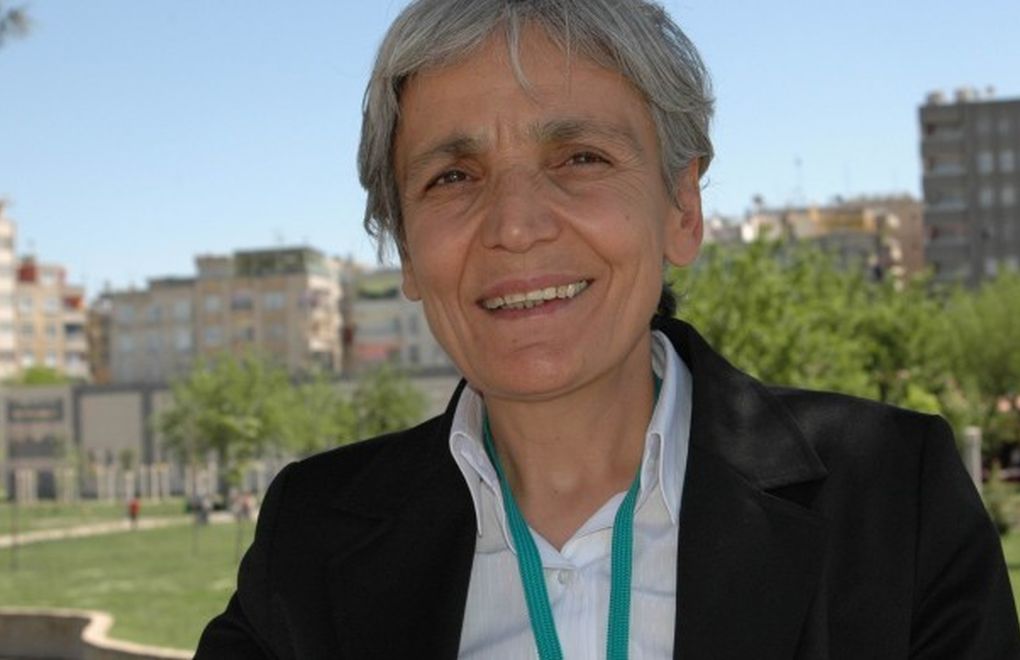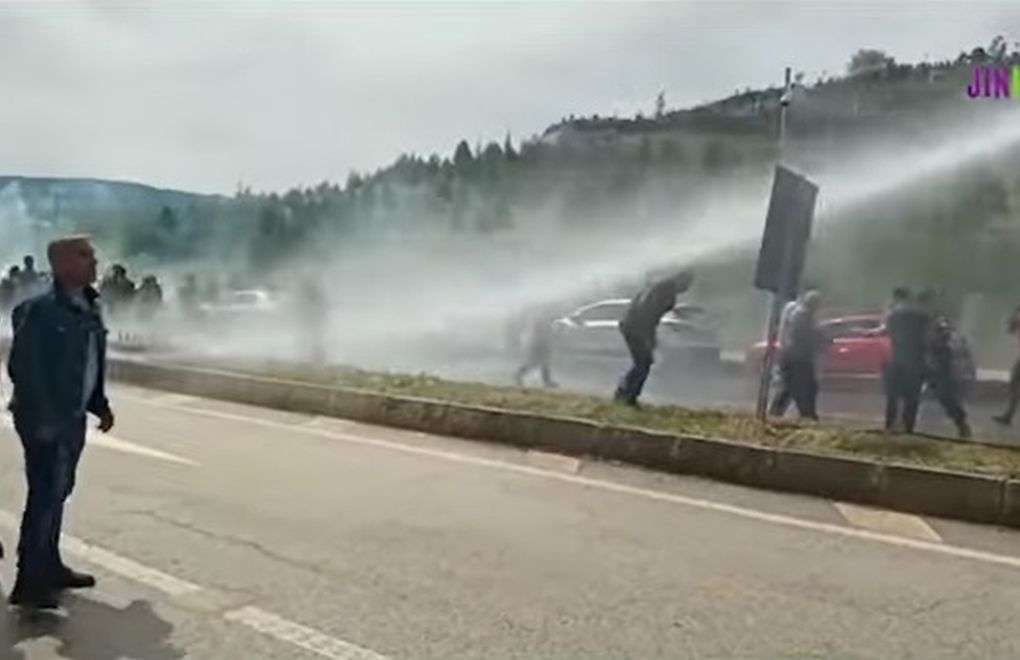Click to read the article in Turkish
Police attacked people who attended the funeral of Kurdish politician Aysel Doğan yesterday (May 15) in the southeastern province of Dersim, her hometown.
Doğan on May 11 died in exile in Germany, where she was receiving cancer treatment.
Doğan's body was sent to Dersim after a ceremony in Diyarbakır. In Dersim, the police stopped the people who were taking Doğan's body to her house at a checkpoint in Turişmek Neighborhood, Mezopotamya Agency (MA) reported.
The police did not allow Doğan's body to be taken to her home and used tear gas and pressurized water against the crowd. Hundreds of people then started a sit-in protest after the police asked them to take Doğan to the cemetery.
After some time, police said only Doğan's family would be allowed in the cemetery while she was being buried.
Peoples' Democratic Party (HDP) deputies who attended the funeral were also not allowed in the cemetery. Doğan was buried by her family members while the crowd were waiting outside of the cemetery.
Meanwhile, a journalist named Ozan Yıldırım was taken to the hospital after falling ill during the police response.
About Aysel Doğan
Kurdish politician.
Incarcerated several times due to her political activities, Doğan spent 17 years of her life in prison, where she was diagnosed with cancer.
She was released in 2015 because of her deteriorating health and moved to Germany before receiving a prison sentence once again.
She participated in the 1991 parliamentary elections as an independent candidate from her hometown, Dersim, and got the highest share of the votes. But she was not mandated because of the Election Law.
Having taken refuge in Europe, she was among what was called the "Second Peace Group," a group of Kurdish political refugees who returned to Turkey upon a call from Abdullah Öcalan, the leader of the Kurdistan Workers' Party (PKK).

All of the members of the group were arrested after entering the country and eventually received prison sentences of 7 to 15 years.
Doğan was released after 10 years in prison and founded the Dersim Academy of Alevi Belief and Culture.
She was arrested once again in September 2011 in an investigation into the Kurdistan Communities Union (KCK), a parent group of the PKK.
Sentenced to 18 years in prison, she participated in the 2012 hunger strikes against the "isolation" of Abdullah Öcalan, the imprisoned leader of the PKK.
After the Specially Authorized Heavy Penal Courts were abolished, the Court of Cassation reversed the verdict and ruled for a retrial.
Handed a prison sentence after the retrial, she once again left the country and lost her life in Germany.
She was born in Dersim in 1953. (RT/VK)




